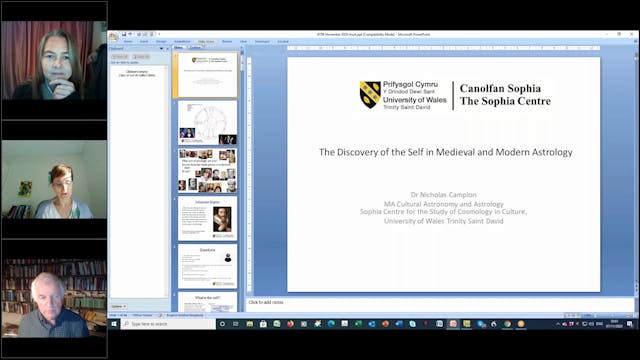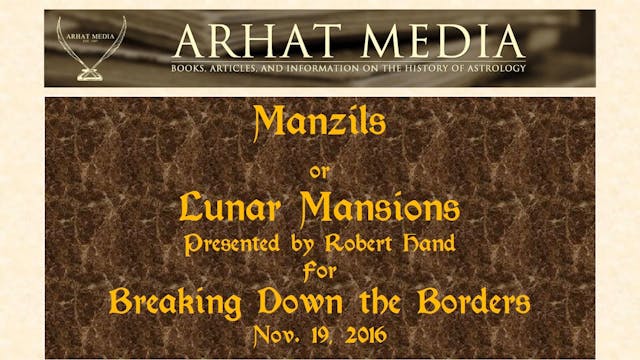Mundane Astrology: The Basics, with Ed Tamplin
Traditional and Ancient Astrology
•
19-Nov-2016
This lecture concentrates on the techniques and origins of mundane and political astrology and prediction. The lecture draws on classical techniques originating from ancient Mesopotamia and supplemented by such mundane masters such as Masha’allah, through Kepler and down to the more contemporary Andre Barbault. Ed explains the relevance and best use of cyclic studies, eclipses, and national charts and equally importantly how to prioritize this material in your work.
Ed Tamplin has been a professional astrological consultant and media presenter for over twenty-five years. His special interest has been mundane analysis and research into predictive techniques for political and world prediction. In April of 2008, speaking before the astrology Association of NSW, he forecast the global financial collapse down to the exact week. For the last decade Ed has written a regular mundane column for the Federation of Australian Astrologers' Journal, more recently correctly nominating September 2015 as the time of Tony Abbott's downfall and written over a year in advance.
Up Next in Traditional and Ancient Astrology
-
Invisible Things: Horary Astrology - ...
This lecture is provided in both English and Russian.
Эта лекция проводится на английском и русском языках.
Horary questions concerning hidden or absent things occupy an important place in astrological art. In fact, most of the manuals for astrologers describing the rules and methods of horary ...
-
Discovery of the Self in Medieval and...
Astrologers often talk about the soul, but without saying what they think it is. Many scholars think that the Self was discovered in the late nineteenth century. But it was in the thirteenth century that the translation of astrological texts from Arabic caused a crisis in the European mind. This ...
-
Manzils, or Lunar Mansions, According...
Most astrologers with any knowledge of Hindu astrology (Jyotish) are aware that it uses a division of the zodiac into 27 nakshatras, often referred to as Lunar Mansions. Fewer astrologers are aware that Arabic and Medieval Latin astrology also have such a system except that it is based on the div...



